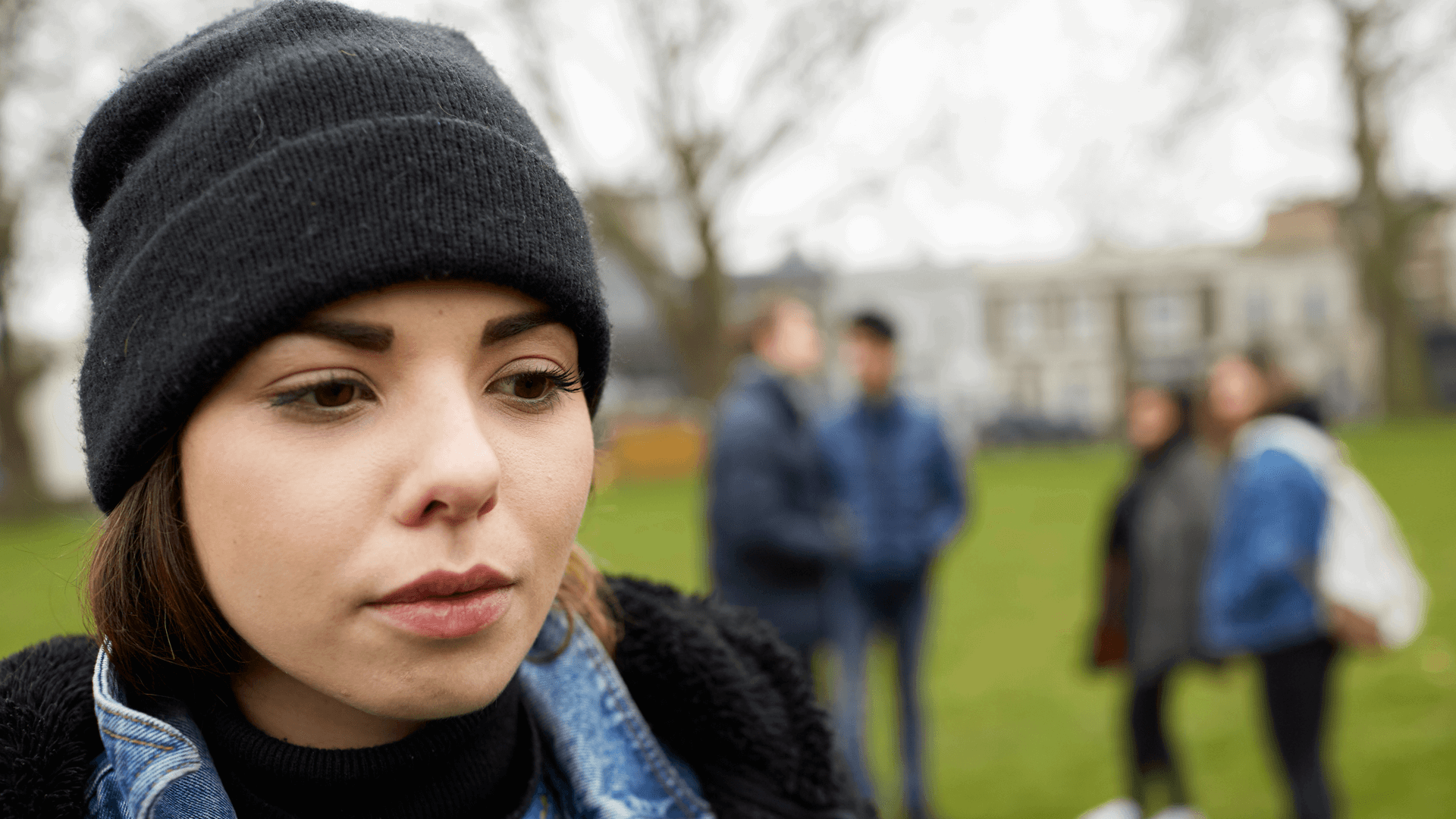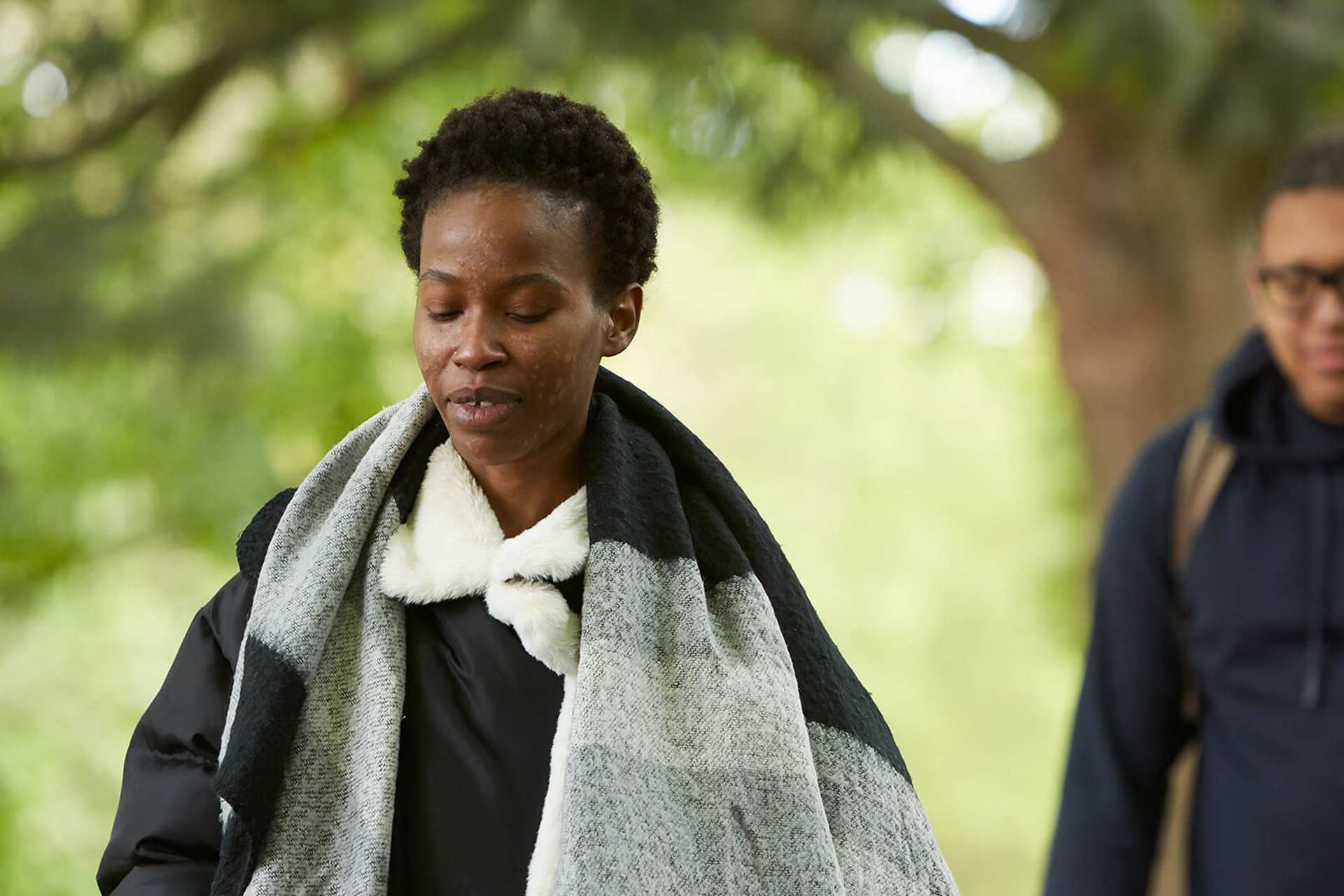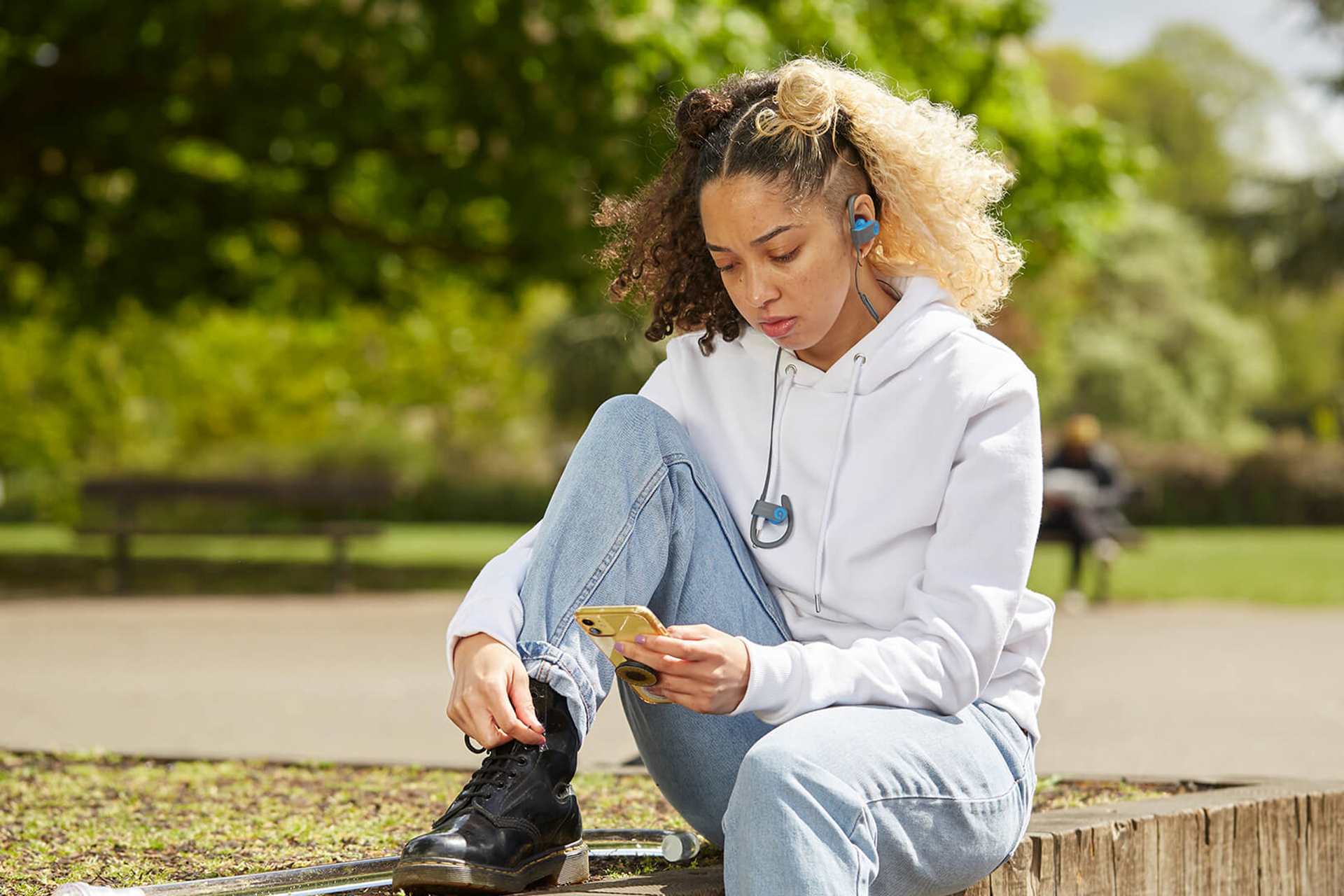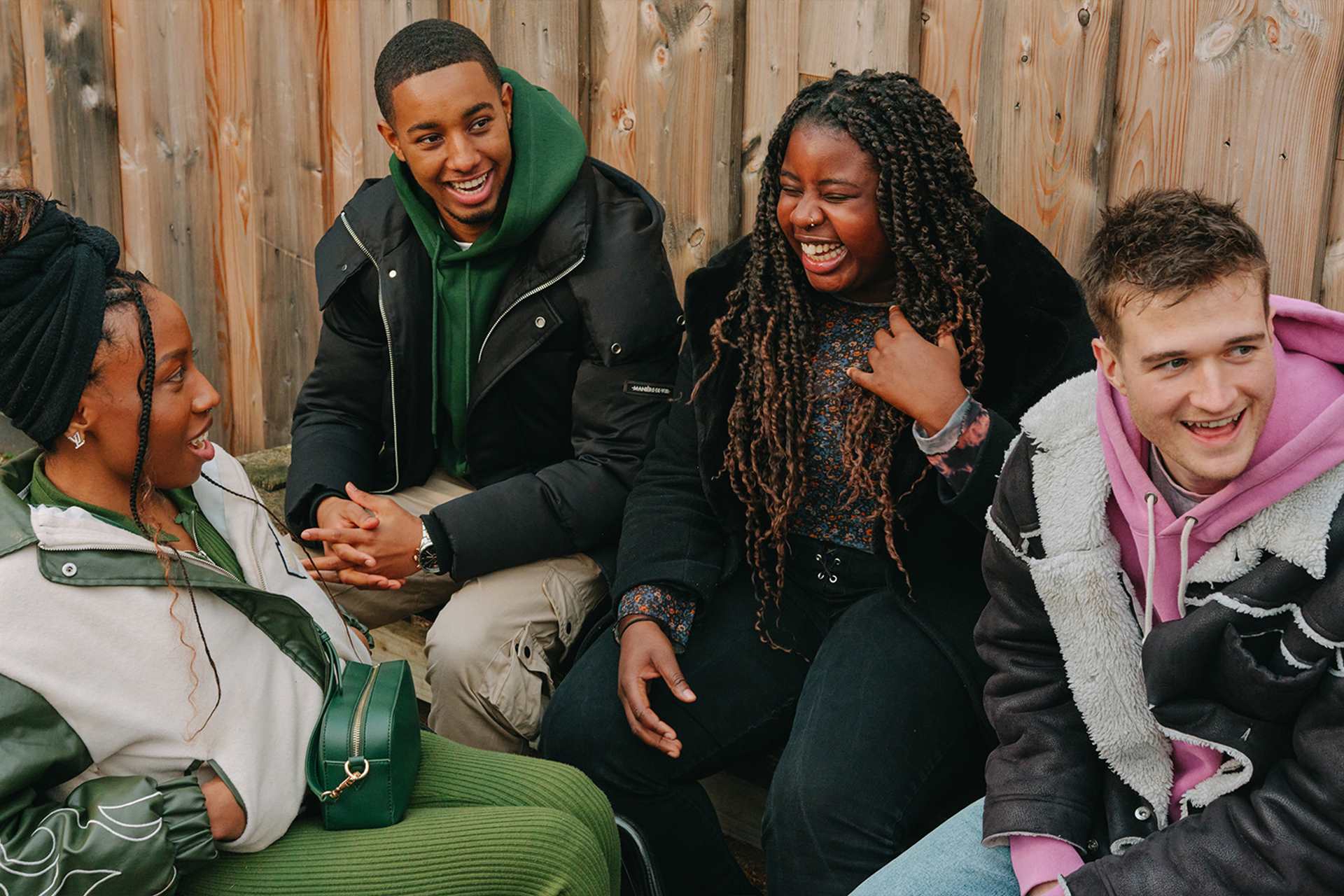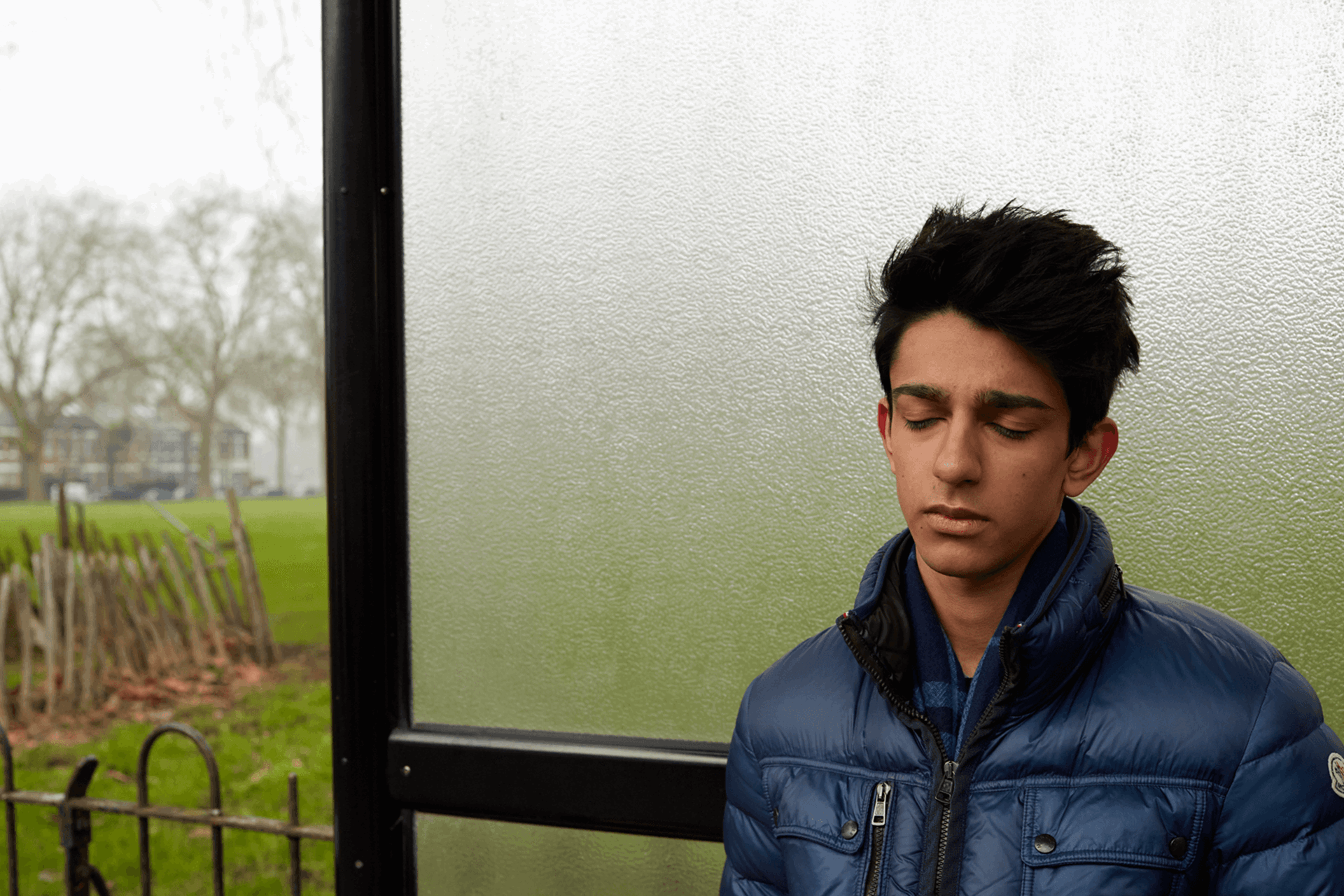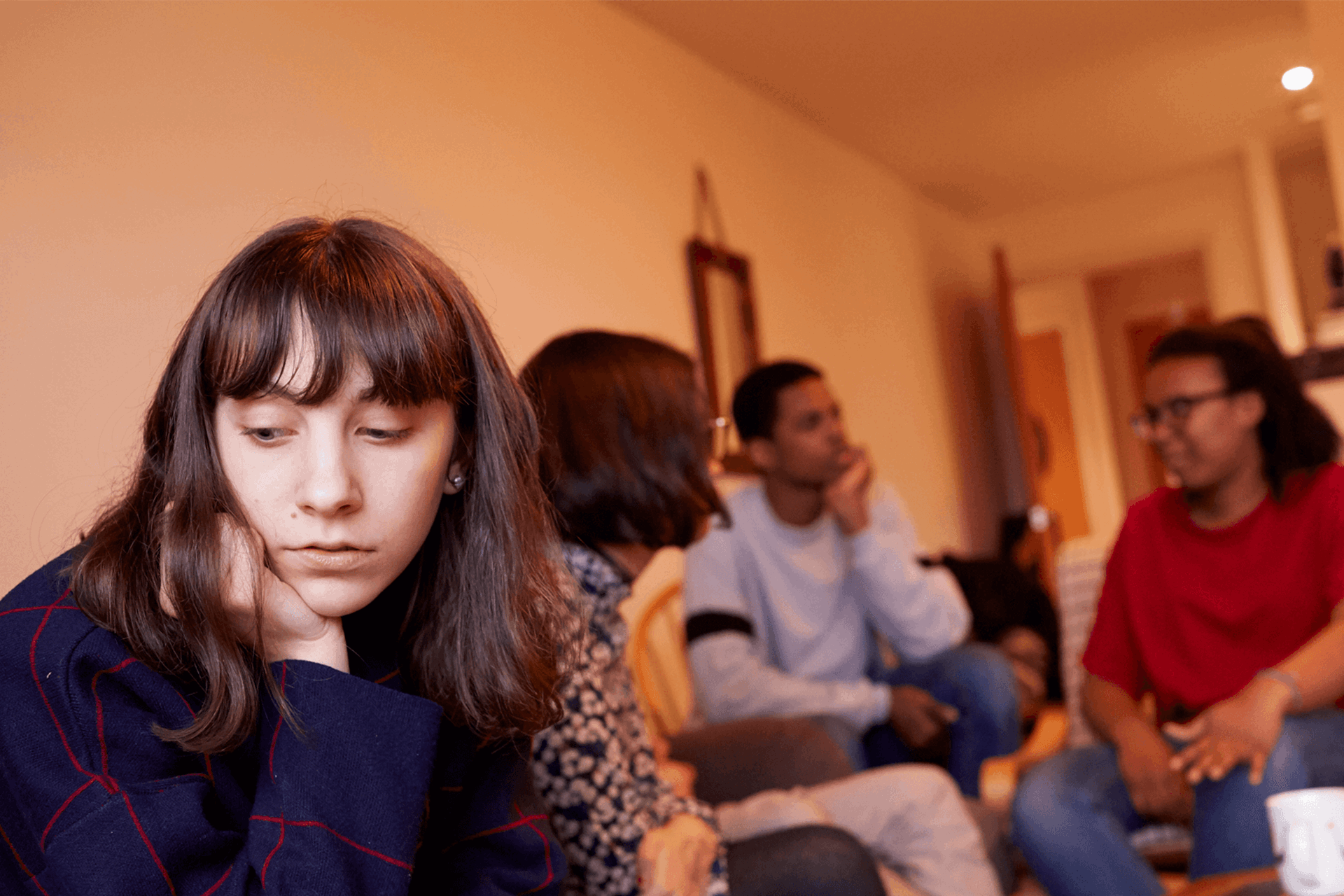Topics mentioned: phobias, anxiety
About: Living with social anxiety can be really difficult, but things can get better. Emily shares what she's learnt about dealing with social phobia.
I vividly remember the emotional chaos of my social anxiety. The sleepless nights spent agonising over worst-case scenarios. The anxiety and fear consuming me each morning, knowing I’d have to face it all over again that day. The ritualistic behaviours I felt compelled to do in order to ease my worrying. It’s sad to think of all that precious time I’ll never get back.
Struggling with social phobia
You see, for most of my time at sixth form, I had a crippling phobia of being there. I was terrified of being in a classroom, of being around more than just my small group of friends and especially of exam halls! Nope. Absolutely not. N-O!
Every time I even thought of these scenarios I would break out into sheer panic and a vicious cycle of anxiety quickly took hold. I would shake, sweat and my heart would feel like it was literally smashing my ribcage to pieces from beating so hard. I felt sick, my bladder felt like it was about to burst and my stomach – well, ‘butterflies’ doesn’t even cut it. I was consumed by the dread that something awful would happen: what if I do something embarrassing? What will people think of me if something happens? What if I THROW UP? Can everyone hear my stomach CHURNING away? WHAT IF I CAN’T ESCAPE?!
I was on constant high alert and, needless to say, I spent a lot of time away from sixth form and running out of class because I was absolutely petrified.
For most of my time at sixth form, I had a crippling phobia of being there.
Note to my younger self: talk to someone
Going through all of this I felt so alone. I was too embarrassed by the side effects of my social anxiety to tell anyone what I was going through. If I did say anything, I’d sugarcoat it and only tell a version of the truth that I could handle admitting. For me, that’s where I first went wrong. I really wish I could tell 17-year-old Emily to just tell someone. Believe me, it feels so much better to get your worries out of your head and be honest about what you’re going through. You’re likely to find that other people have similar ‘weird’ or ‘embarrassing’ worries too.
At the time, sitting in an exam hall (or even just a classroom test) felt as impossible for me as climbing Mount Everest. The silence would deafen me. I was frozen with the fear that my anxiety would flare up, I’d lose control, something embarrassing would happen and I wouldn’t be able to get out in time before all eyes were on me. I quickly began to avoid these situations as a way to stop this from happening. It even got to the point where I chose to sit my exams in a separate room. Before I knew it, I was trapped in the sticky claws of avoidance behaviour.
At the time, sitting in an exam hall (or even just a classroom test) felt as impossible for me as climbing Mount Everest.
The trouble with avoidance
Avoidance was my second downfall. This is really common for people who have anxieties or phobias: we avoid the things we’re scared of in order to cope. It makes you feel better in the short term but in the long term it just makes your anxiety worse. Why? Because by avoiding your fears, you’re not allowing yourself the chance to prove them wrong. You give your anxiety more power over you. However, when you confront your fear you often realise: hey, I did it! I can cope after all!
A standard treatment for social anxiety or phobias is to gradually confront your fears using an exposure hierarchy. This is a list of your worries going from least to most uncomfortable. You might feel able to do this by yourself, but it’s best to do it with the support of a mental health professional.
By avoiding your fears, you’re not allowing yourself the chance to prove them wrong.
Breaking the cycle
When I got to university I knew I had a decision to make. Did I really want to be stuck in this horrible cycle forever? Absolutely not. So with all the strength I could possibly muster, and using mindfulness exercises like progressive muscle relaxation and breathing techniques to calm my anxiety, I bit the bullet. For the first time in so long I sat, in a silent exam hall, surrounded by hundreds of students - I DID IT!
Since then, it’s got gradually easier to work through my social anxiety. I still have the intrusive thoughts and the ritualistic behaviours were hard to let go of, but once I showed myself that I could fight my fears it got easier to let go of them and even easier to ask for more help.
Once I showed myself that I could fight my fears it got easier to let go of them and even easier to ask for more help.
I graduated university with a first-class degree in psychology. And you better believe I sat my final exams in the main hall, surrounded by other people, keeping my anxiety under control and smiling at just how far I’d come.
If I can do it, believe me, so can you.
More information and advice
Where to get help
-
No Panic
Supports people struggling with panic attacks, phobias, obsessive compulsive disorder (OCD) and other anxiety-related issues - and provides support and information for their carers.
Call 01952 680835 for a recorded breathing exercise to help you through a panic attack (available 24/7).
- Opening times:
- 10am - 10pm, 365 days a year
-
Samaritans
Whatever you're going through, you can contact the Samaritans for support. N.B. This is a listening service and does not offer advice or intervention.
- Opening times:
- 24/7
